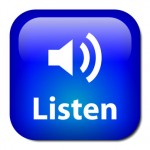Somehow, after 10 years of living with anxiety, I’ve managed to stay off of medication. But, for better or for worse, that’s not the case for most people with anxiety and depression.
In fact, researchers believe that up to 10% – or about 30 million people – in the United States alone use an antidepressant. There are also millions more around the world that use antidepressants, beta blockers, sedatives and sometimes even a combination of these drugs to help themselves them cope with their anxiety and depression symptoms.
Many of you are probably well versed in anti-anxiety drug types, brand names, dosages, etc. So this post is really aimed at those of you that don’t have a clue about these drugs; are on the fence about trying a new drug, or for those taking a drug that’s just not doing anything for you.
So, let’s review your options.
When it comes to treating anxiety disorder you have three basic choices.
Antidepressants – Perhaps the most widely prescribed and consumed “happy pill” on the planet. The term antidepressants is kind of a misnomer, because antidepressants are actually a category of drug, and not just a drug. So, there are more than one kind and they all work differently.
For example, MAOI’s are a potent antidepressant that regulate MAOI’s (enzymes that effect neurotransmitters) so that they don’t get too high or too low thus preventing neurological problems.
There are also SSRI’s, TCA’s, and SNRI’s. These drugs all act on or effect the brains chemical messengers, called neurotransmitters. Researchers believe that when these brain chemicals (like serotonin) are out of whack it can cause anxiety or episodes of depression. These drugs are meant to correct the imbalance of these “brain juices.”
Type: Mood enhancer.
Side effects: Nausea, weight gain, sexual side effects, fatigue, insomnia, dry mouth, blurred vision, agitation, anxiety, disturbing thoughts.
Examples:
SSRI’s – Zoloft, Prozac, Paxil, Celexa, Lexapro.
SNRI’s – Cymbalta, Effexor, Pristiq.
TCA’s – Surmon, Pamelor, Tofranil, Norpramin, Elavil.
Beta Blockers – These drugs are generally used by cardiac patients, but they are also prescribed for anxiety. Unlike antidepressants, these drugs are meant to calm anxiety symptoms like palpitations, sweating, fast breathing – basically panic symptoms. They also lower your heart rate.
Type: Symptom suppressor.
Side effects: fatigue, cold hands, dizziness, weakness, shortness of breath, insomnia, depression.
Examples: Coreg, Sectral, Tenormin, Bystolic, Corgard, Zebeta, Bisoprolol.
Benzodiazepine – When you think “benzo” think Valium. This is a sedative drug, meant to relax muscles, reduce anxiety, and probably put you to sleep. As the video I included pointed out, these drugs can be addictive, so in general they are only prescribed for short periods of time.
Type: Sedative.
Side effects:drowsiness, dizziness, blurred vision, headache, confusion, depression, weakness, change in heart rate.
Depending on what ails you – it’s possible to pick a med that acts on your main problem specifically. Say, for example, that you have frequent panic attacks or you get uneasy in social settings. In this case, a beta blocker could be a good choice because it calms physical symptoms.
If on the other hand, you have trouble relaxing or sleeping, then a benzodiazepine may be a good call.
And if you have depression, constant anxiety, and disturbing thoughts (like suicide), then an antidepressant may help you.
There are three main things to keep in mind when deciding on what drug to use or when deciding if drugs are even something you want to try.
- Make sure that you talk to your doctor. That is, don’t just walk in there and take whatever is given to you. Also, don’t insist on a drug you’re not sure about. Get informed, then ask questions and make the decision with your doctor.
- Beware of all side effects and possible reactions with other medications you’re taking.
- Understand that drugs will not cure you. Sometimes we all have difficult moments and hope for a miracle; but this is not what drugs are. They can provide the short-term relief you need as you seek therapy or other means of healing yourself. Ultimately, drugs only mask your symptoms, they don’t make anything go away indefinitely.
Personally I don’t take drugs because I feel that in my case they are not necessary. For me, the risks outweigh the benefits. But for you the situation could be totally different.
I think that as long as you’re well informed, have a good doctor, and a plan, you should be fine. Don’t feel guilty or weak for having to take medication. By the same token, don’t let others pressure you into taking drugs that you may not need or want.
The issue of whether drugs are helpful in the treatment of anxiety and depression is under some debate. But – as of today – the consensus is that drugs are helpful. In the medical community, for example, anti-anxiety drugs are widely seen (and used) as an effective treatment for anxiety disorder. Keep in mind that drugs can be dangerous, but they can also be a lifesaver. I’m not an anti-drug zealot, all I’ve ever said is that you should do what works and what’s safe.
****
Disclaimer: This information is not intended to be a substitute for professional medical advice, diagnosis, or treatment. Always seek the advice of your physician or other qualified health provider with any questions you may have regarding a medical condition.
Image source:cooltext.com






I have been battling anxiety sinc April of last year. My therapist suggested medication but told her that I wanted to hold off and see if therapy and some self help would work first. So far I’m okay without meds but it’s a struggle. How did you manage to stay off meds for 10 years? that’s amazing.
Hi Ria,
I’ve been able to stay off of meds because at first I was worried about side-effects… later on I became concerned that taking drugs would not allow me to “deal” with the issues keeping me anxious.
Drugs really help some people, but I didn’t want to grow dependent on them myself.
And eventually when I learned how to cope with my anxiety, well, at that point I didn’t feel that they were necessary.
I still have bad days every now and then, but I feel great 90% of the time.
Good thing that you are being selective about your treatment. Keep all of your options open and just make sure you do your research if you decide to take medication.
Good luck.
Thank you Paul for such an inspiration. Your website is filled with helpful information. I am truly enjoying all your insightful entries. You truly give me more hope that things will get better everyday. I hope that some day soon I can feel great 90% of the time!!! It’s a daily struggle but I’m learning to cope. I find ways to help myself like learing more about anxiety, reading blogs, self help books, walking, yoga etc…though i’m still learning to shut off the “what if” chatter in my head!! and the physical sensations can be really awful at times…Anxiety really took my life for a spin, but I don’t lose faith…I’m sure there’s a reason why things happen in our lives…
I do not want to take Xanax (I was on a very low dosage). I do have social anxiety speratically (I hope that’s a word). Do you think a beta blocker would work? Are they habit forming??
Meds are not bad! If they help you don’t worry about being on them, if you had a heart condition you’d take drugs, so why should anxiety/depression be any different? I am on Paxil, have been on it for 7 years and will take it forever because it helps me. If it stops working I’ll have my doc give me something else. I have experienced life not on meds, not interested! I say take them if you need them and don’t worry!